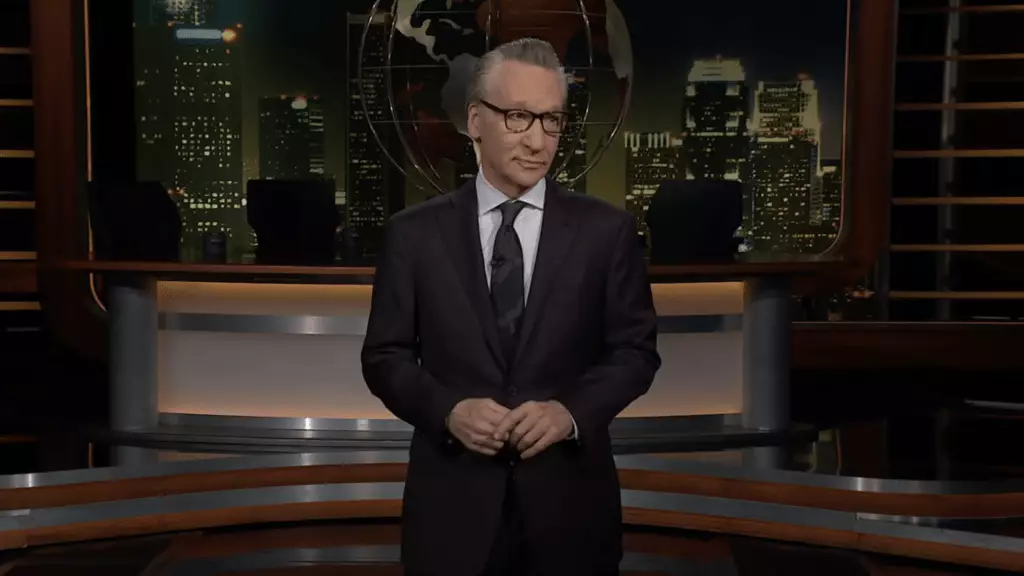In an age where the lines between entertainment and serious discourse often blur, the recent remarks by Bill Maher regarding Donald Trump’s Madison Square Garden rally epitomize the complexities of using humor within the political realm. Notably, Maher criticized the choice of comedian Tony Hinchcliffe, who delivered a notably offensive set that included derogatory remarks about Puerto Rico. This incident reflects not just on the nature of political rallies but also on how comedy can be weaponized in sociopolitical campaigns. Maher observed that the choice to feature an insult comic was emblematic of Trump’s style—one geared towards provocation rather than constructive dialogue.
Maher’s perspective sheds light on the paradoxical demand for both entertainment and a semblance of decorum in political proceedings. The choice to hire a comedian known for insults raises essential questions about what audiences expect at such events. It was telling that even within a crowd known for its alignment with Trump, Hinchcliffe’s inflammatory humor fell flat. Maher’s insight reveals a rift where even supporters of combative politics might resist humor that crosses certain lines—suggesting that the audience, while open to sarcasm, also possesses boundaries that should not be crossed.
While Maher defended the lauded freedom inherent in comedic expression, he couldn’t ignore the backlash that arose from Hinchcliffe’s set. He cautioned about the consequences of such humor. He worries that the Democratic party might appear “weak” in the aftermath of mocking commentary. This concern mirrors the broader debate over how jokes, particularly those that target vulnerable communities or contentious political ideologies, can both rally supporters and alienate others.
The use of humor in politics is not merely an art form; it serves as a strategic tool to galvanize support. Yet, Maher lamented that the trouncing of decorum might have reached a tipping point. Comedians often tread a fine line between provoking thought and inciting anger, a balance that seems exceptionally precarious in today’s divisive political climate.
Maher draws attention to a certain hypocrisy observed in the reactions from both political factions following the event. Despite President Joe Biden’s earlier jibe directed at Trump supporters, which could reasonably be categorized as mockery, Maher pointed out the Republican response to Hinchcliffe’s remarks as excessively sensitive. The irony of political “snowflakery” is profound; wantonly hurling insults may be an accepted norm for some yet off-limits when reversed. This mutual intolerance between the political parties reveals a concerning fatigue in dialogue grounded in respect and genuine exchange.
The comedian further emphasized this hypocrisy when remarking that Trump supporters would have erupted in outrage had the roles been reversed. This statement underscores a significant double standard regarding humor and criticism in American politics: whether a joke is received or rejected largely depends on who is making it. Such scrutiny complicates the landscape for comedians who aim to engage in political satire, leaving them exposed to backlash from targeted audiences who may not always appreciate being on the receiving end of humor.
Amid this discourse, Vice President Kamala Harris’s response following the rally provides a stark counterpoint. With a focus on unity and progress rather than the hostility embodied in comedic insult, Harris’ messaging resonates with a vision for bridging divides rather than exacerbating them. Her commitment to seeking common ground stands as a reminder of politics’ potential for positivity amid the cacophony of chaos.
In a political environment steeped in animosity, the plea for understanding emerges as a solution. Harris’s remarks about embracing disagreement while avoiding antagonism illustrate a prioritization of civility over the current trend of personalized attacks. Such an approach may indeed pave the way for more productive political discourse, rendering humor a complement to, rather than a substitute for, substantive engagement.
Maher’s critique of the Trump rally comedy underscores deep-seated challenges within American political culture, while also inviting conversation about the role of humor amid heightened divisions. As comedian and politicians navigate this complicated landscape, the need for empathy and understanding remains ever more pressing.

